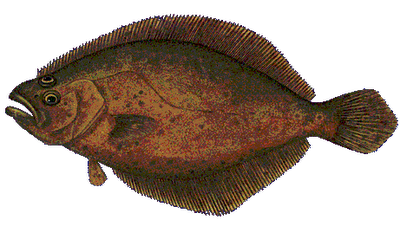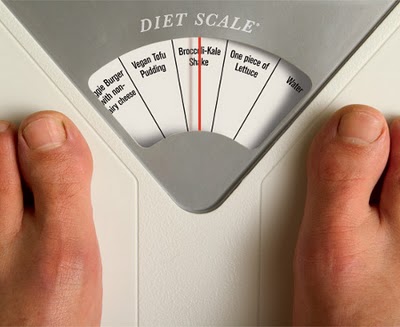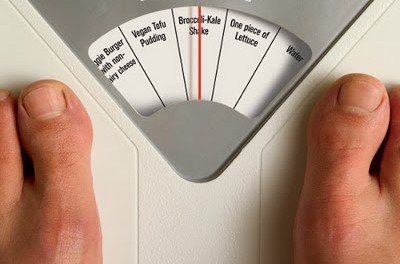Flukes–more than fish.
 In January this year, I was in Cancun at a conference (I know, life is harsh). We were traveling from the hotel to the conference and my friend David gave me half a peso back in change because I had lent him too much for bus fare. I said flippantly that he could keep the “half-cent”. He pointed out to me that half a peso was more than half a cent, and was, in fact, 5 cents, or a nickel. I said it was barely more, and he rebutted that it was TEN times more. It was then that I realized this was a very good illustrative example of how a statistically meaningful difference still doesn’t translate into buying a pack of gum.
In January this year, I was in Cancun at a conference (I know, life is harsh). We were traveling from the hotel to the conference and my friend David gave me half a peso back in change because I had lent him too much for bus fare. I said flippantly that he could keep the “half-cent”. He pointed out to me that half a peso was more than half a cent, and was, in fact, 5 cents, or a nickel. I said it was barely more, and he rebutted that it was TEN times more. It was then that I realized this was a very good illustrative example of how a statistically meaningful difference still doesn’t translate into buying a pack of gum.
Most of the studies I review for this site fall into two categories: Read More...
Beta-alanine redux: Same question, still no answer. But they still recommend you take it.
 It’s been three years since I’ve written about beta-alanine. I do monitor the literature from time to time to see what’s new in the BA research world. But really, there isn’t anything new. There still is no definitive answer that BA does anything meaningful. The latest BA study not only failed to find anything meaningful, but also failed to plan to find anything meaningful, allowing the gods of statistical probability to decide if the fruits of their labour would be met with reward.
It’s been three years since I’ve written about beta-alanine. I do monitor the literature from time to time to see what’s new in the BA research world. But really, there isn’t anything new. There still is no definitive answer that BA does anything meaningful. The latest BA study not only failed to find anything meaningful, but also failed to plan to find anything meaningful, allowing the gods of statistical probability to decide if the fruits of their labour would be met with reward.
Kern BD, Robinson TL. Effects of beta-alanine supplementation on performance and body composition in collegiate wrestlers and football players. Journal of Strength and Conditioning Research, 25(7):1804-1815, 2011. Read More...
Anecdotal Evidence-Based Fitness
At some point in every fitness-writer/blogger’s lifespan, there comes a point where the rubber has to meet the road. We write about fitness and nutrition and body-image, but I’m sure there are many bloggers who can (and I apologize for the use of two cliches in two sentences) talk the talk, but can’t, don’t or won’t walk the walk.
And at some point in every fitness-writer/blogger’s lifespan, there has to be come form of accountability for what he or she writes. A proponent of supplement X should probably be using supplement X and not just writing in favour of it to get paid if they really think it works. A writer who believes in workout A enough to rave about it should probably be able to show that it works at least for themselves. It’s of little value to say, “X totally works and everyone should be using X, but I don’t.” Read More...
Not evidence-based, but still a neat foodhack
Ever find yourself crushing a bag of snack food? Part of the reason why you can is because it’s there. Not only is it there, it’s immediately accessible. So here’s an idea that you can try while still keeping your sanity.
For some people, certain foods are hair-trigger foods. These are foods you can’t resist, no matter how hard you try. They’re the foods you’ll go out of your way to eat, and over which you have essentially no control (for me, these are profiteroles of any variety, chocolate-covered or not). This foodhack is not for those foods. Those foods are foods you should probably not have in your home except under specific conditions and quantities. Read More...
The Information Diet
 The New Year season is full of resolutions to diet for weight loss. It’s also one of the most fruitful seasons for merchants who produce weight-loss products to add to their bottom line. They’re easy to find and getting more and more clever with each passing year. They’re on Google Ads, banner ads, Facebook, Twitter, youTube, and infiltrate virtually every other on-line media you use on a daily basis.
The New Year season is full of resolutions to diet for weight loss. It’s also one of the most fruitful seasons for merchants who produce weight-loss products to add to their bottom line. They’re easy to find and getting more and more clever with each passing year. They’re on Google Ads, banner ads, Facebook, Twitter, youTube, and infiltrate virtually every other on-line media you use on a daily basis.
This easily leads to information overload, as well as fear-based marketing: How do you choose from all of the products available? How do you sift through the inundating assault of those massively lengthy webpages that have PARAGRAPHS of text and testimonials? And worse yet, how do you know that one of those products isn’t better than the one you’re going to buy? Read More...
Defending yourself against decision overload
 It’s 2011, and a new year for the ongoing onslaught of infomercials, internet promises and magazine gimmicks competing for your attention.
It’s 2011, and a new year for the ongoing onslaught of infomercials, internet promises and magazine gimmicks competing for your attention.
A friend of mine once told me, “The most expensive clothes you’ll ever buy are the ones you never wear.” The same goes for diet programs, online e-books, and new (or just re-branded) products. Most people don’t buy new clothes thinking they’ll never wear them. Likewise, most people don’t buy new fitness products thinking they’ll never use them. Read More...
Same message, funnier vehicle
 Thanks to Sid S. who sent me this link in response to “Gymnastics makes you short“.
Thanks to Sid S. who sent me this link in response to “Gymnastics makes you short“.
97-year old dies unaware of being violin prodigy (Courtesy of the Onion) Read More...
It was bound to happen
 This blog entry is courtesy of Fran Mayo who read an article in “Runner’s World” about some of the benefits of drinking pomegranate juice. It was fairly inevitable that I would get around to talking about pomegranate juice. It is, after all, all the rage right now and POM is currently in the media regarding some dubious health claims.
This blog entry is courtesy of Fran Mayo who read an article in “Runner’s World” about some of the benefits of drinking pomegranate juice. It was fairly inevitable that I would get around to talking about pomegranate juice. It is, after all, all the rage right now and POM is currently in the media regarding some dubious health claims.
There are lots of reasons to drink pomegranate juice. Personally, when it first came out as a commercial product, I thought it was a pure novelty. I mean, have you ever EATEN a pomegranate? It takes FOREVER. The whole idea of juicing enough fruit to make a whole bottle of pure pomegranate juice was just unfathomable. So from my perspective, one of the reasons to drink pomegranate juice is because you can. All that pomegranate-y taste without the painstaking work. Read More...
If you’re going to claim to improve hypertrophy, measure hypertrophy. (P.S. Your experiment has to be replicable)
 There’s been lots of attention to one of the latest studies out of McMaster University on low-load high volume resistance exercise and protein synthesis. I, for one, am not beneath jumping on bandwagons of any kind. However, let’s strike to the core of the matter, as opposed to dancing around all the peripheral (and also somewhat inconsequential) criticisms of the study.
There’s been lots of attention to one of the latest studies out of McMaster University on low-load high volume resistance exercise and protein synthesis. I, for one, am not beneath jumping on bandwagons of any kind. However, let’s strike to the core of the matter, as opposed to dancing around all the peripheral (and also somewhat inconsequential) criticisms of the study.
Burd NA, West DWD, Staples AW et al. Low-load high volume resistance exercise stimulates muscle protein synthesis more than high-load low volume resistance exercise in young men. Public Library of Science 5(8): e12033, 2010. Read More...
Actually, yes, you can.
 The amount of time one rests between sets is an often missed, or often underestimated training variable. It’s also one of the least studied variables when it comes to looking at hypertrophy as the outcome (as opposed to strength, or other performance variables, or even biochemical markers). So it is a treat to see a study where hypertrophy is the variable of interest, and where measurement of hypertrophy is truly a direct measurement. While not every investigator can measure hypertrophy in this way, it does go to show that “It can’t be done,” or “It will never get done,” are just words, because these researchers, in the words of the famous Dos Remedios, “did work.”
The amount of time one rests between sets is an often missed, or often underestimated training variable. It’s also one of the least studied variables when it comes to looking at hypertrophy as the outcome (as opposed to strength, or other performance variables, or even biochemical markers). So it is a treat to see a study where hypertrophy is the variable of interest, and where measurement of hypertrophy is truly a direct measurement. While not every investigator can measure hypertrophy in this way, it does go to show that “It can’t be done,” or “It will never get done,” are just words, because these researchers, in the words of the famous Dos Remedios, “did work.”
de Souza TP, Fleck SJ, Simao R, et al. Comparison between constant and decreasing rest intervals: Influence on maximal strength and hypertrophy. Journal of Strength and Conditioning Research 24(7) 1843-1850, 2010. Read More...


